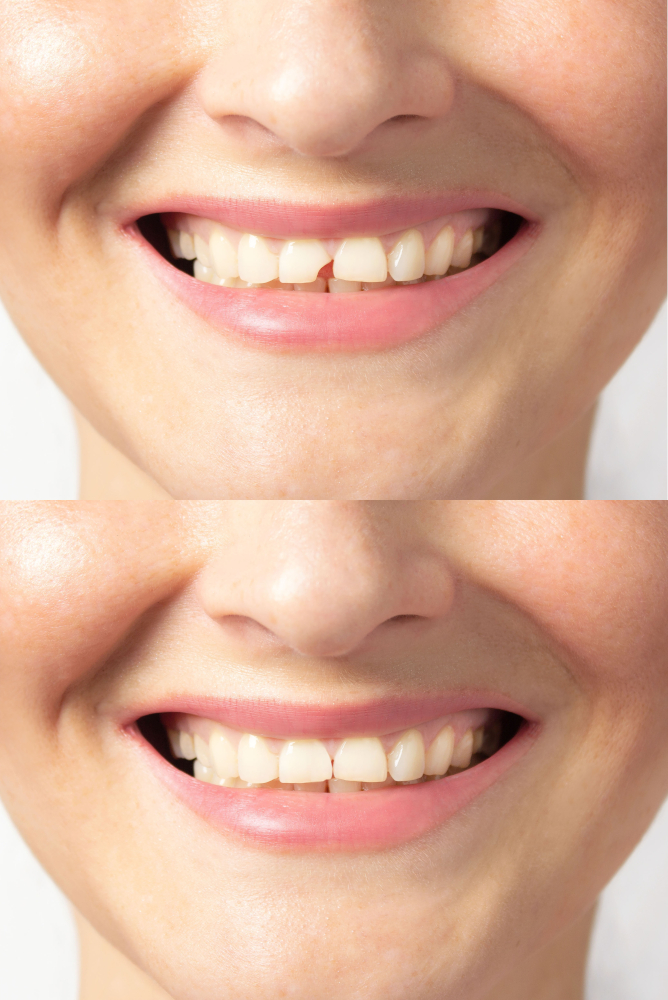Toothaches and Emergency Dental
Toothache Emergency? We Can Help!
At Confidental Dentistry, we understand that toothaches can be a real pain. That’s why we offer emergency treatment for our patients, so you can get the relief you need fast.
Our team of experienced dentists is available to see you on the same day, so you don’t have to suffer. We’ll get to the bottom of your pain and make sure you’re comfortable again as quickly as possible.
Causes of Toothaches
There are many different causes of toothaches, including:
- Tooth decay: Tooth decay is the most common cause of toothaches. It occurs when plaque, a sticky film of bacteria, builds up on your teeth. Over time, plaque can eat away at the enamel of your teeth, causing cavities.
- Gum disease: Gum disease is another common cause of toothaches. It occurs when the bacteria in plaque build up below the gum line and irritate the gums. This can cause the gums to swell, bleed, and recede, exposing the roots of your teeth.
- Infection: An infection in the tooth or surrounding tissues can also cause a toothache. This can happen if a cavity is not treated, or if you have gum disease.
- Injury: A toothache can also be caused by a blow to the mouth, such as a sports injury. This can cause the tooth to crack or chip, or even loosen or fall out.
- Wisdom teeth: Wisdom teeth are the four molars that grow in the back of your mouth, usually between the ages of 17 and 25. For some people, wisdom teeth grow in straight and cause no problems. However, for others, wisdom teeth can grow in crooked or impacted, which means they don’t have enough room to come in properly. This can cause pain, infection, and damage to other teeth.
Possible Treatments
The treatment for a toothache will depend on the cause of the pain. In some cases, you may be able to relieve the pain with over-the-counter pain relievers, such as ibuprofen or acetaminophen. However, if the pain is severe or does not go away with over-the-counter pain relievers, you will need to see a dentist.
The dentist will examine your teeth and gums to determine the cause of the pain. If the pain is caused by tooth decay, the dentist may need to fill the cavity or perform a root canal. If the pain is caused by gum disease, the dentist may need to clean your teeth and remove any plaque or tartar buildup. If the pain is caused by an infection, the dentist may prescribe antibiotics.
In some cases, the dentist may recommend that you have a tooth extracted. This is usually only done as a last resort, but it may be necessary if the tooth is badly damaged or infected.
Preventing Toothaches
The best way to prevent toothaches is to practice good oral hygiene. This includes brushing your teeth twice a day, flossing once a day, and visiting your dentist for regular checkups and cleanings. By following these simple steps, you can help keep your teeth and gums healthy and prevent toothaches.

Chipped Teeth
A chipped tooth is a common dental injury that can cause pain, sensitivity, and difficulty chewing. In most cases, chipped teeth can be repaired with a simple filling or bonding procedure. However, in some cases, more extensive treatment may be necessary, such as a crown or root canal.
If you have a chipped tooth, it is important to see a dentist as soon as possible. The dentist will be able to assess the extent of the damage and recommend the best course of treatment.
Here are some tips to help prevent chipped teeth:
- Avoid biting or chewing on hard objects, such as ice, nuts, or hard candy.
- Wear a mouthguard when playing sports or participating in other activities that could result in a blow to the mouth.
- Brush your teeth twice a day and floss once a day to remove plaque and bacteria, which can weaken your teeth.
- Visit your dentist for regular checkups and cleanings.
By following these tips, you can help keep your teeth healthy and prevent chipped teeth.
